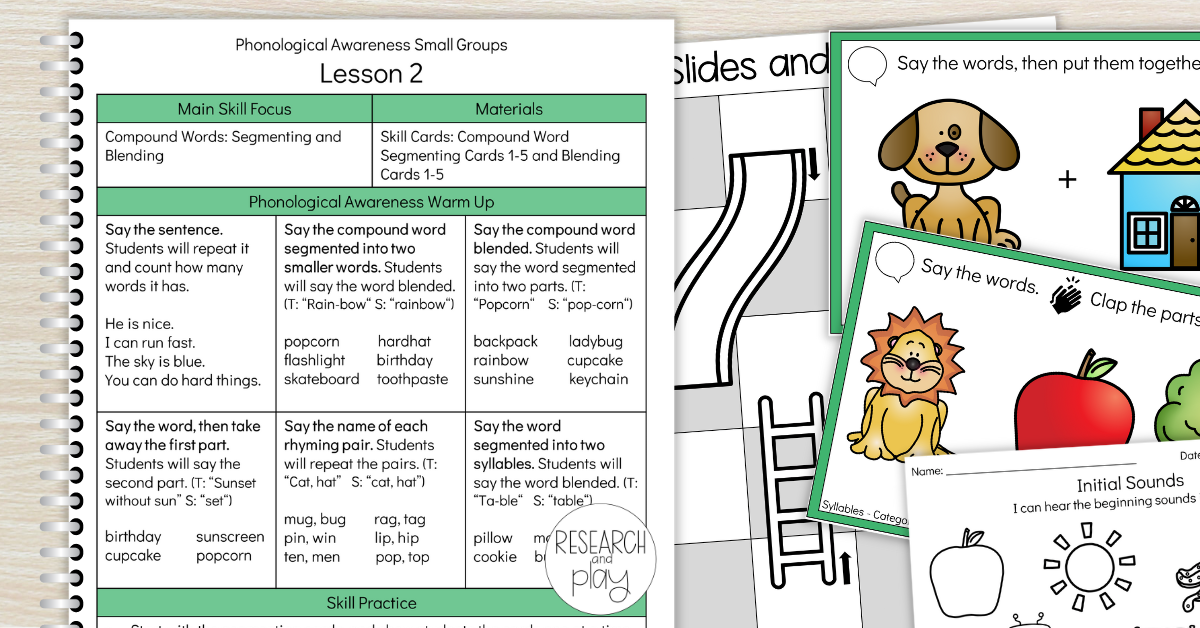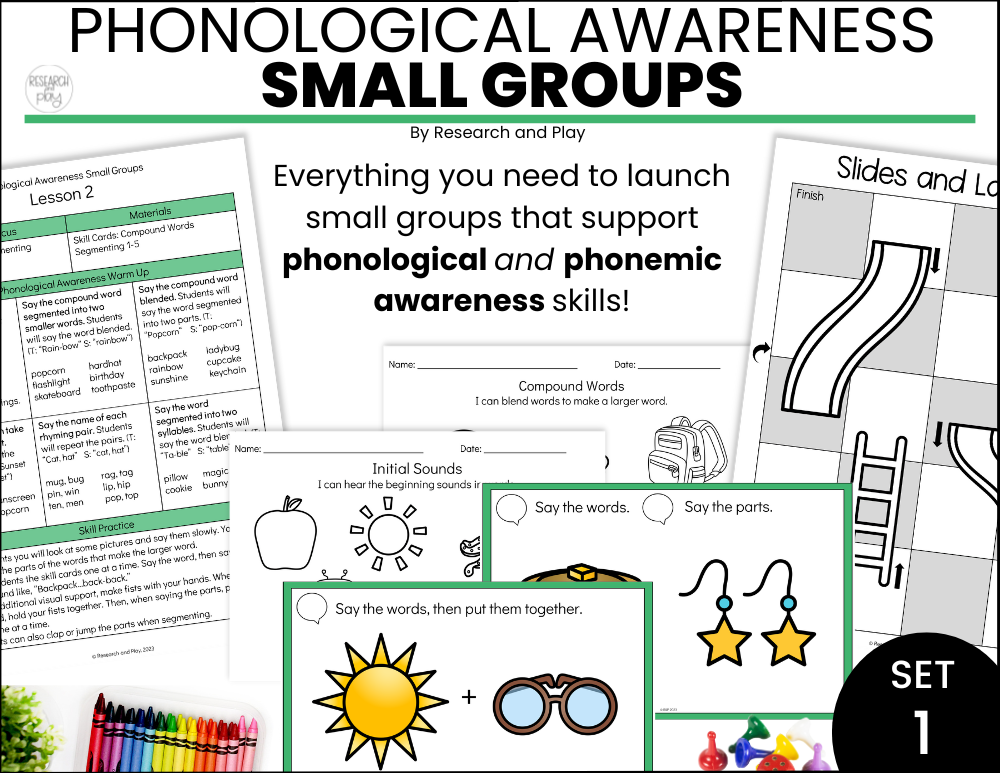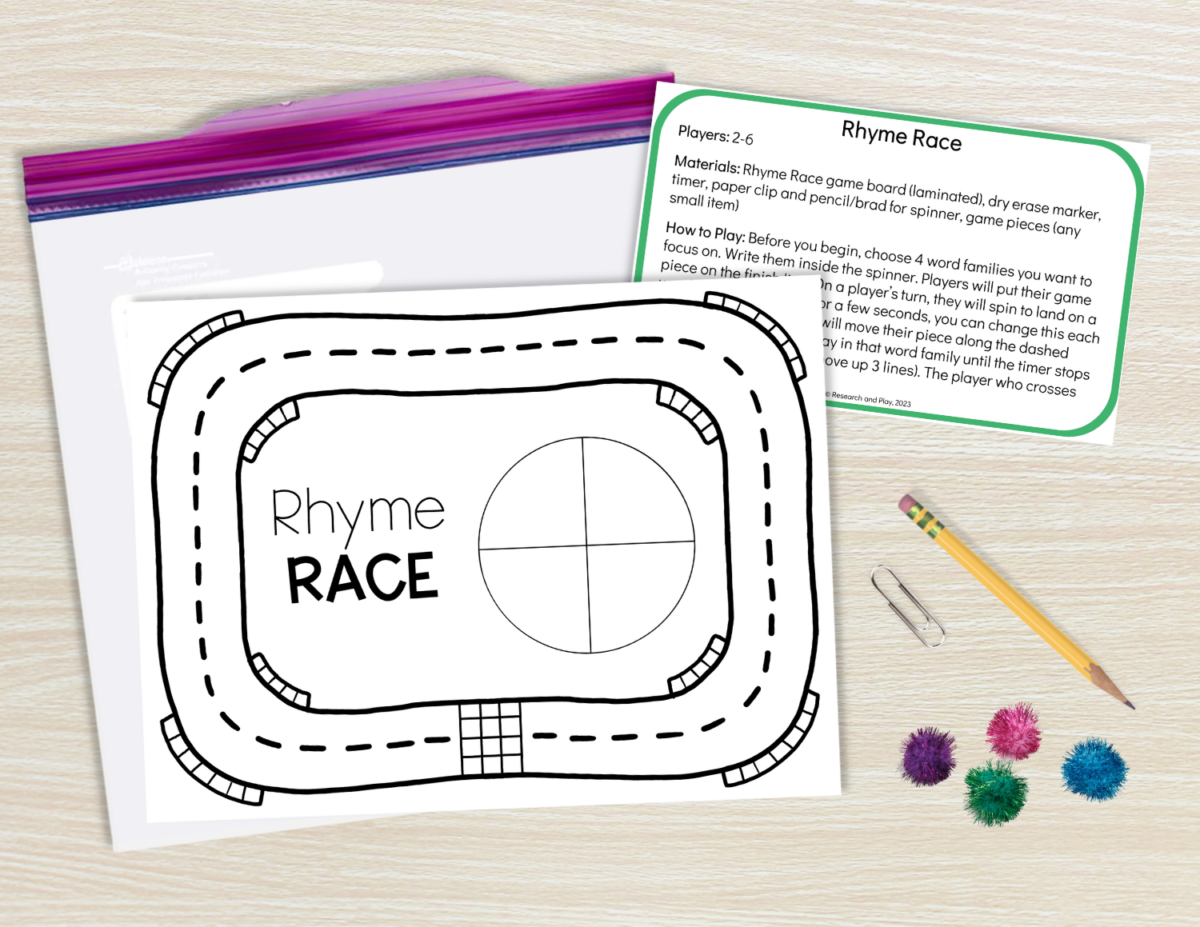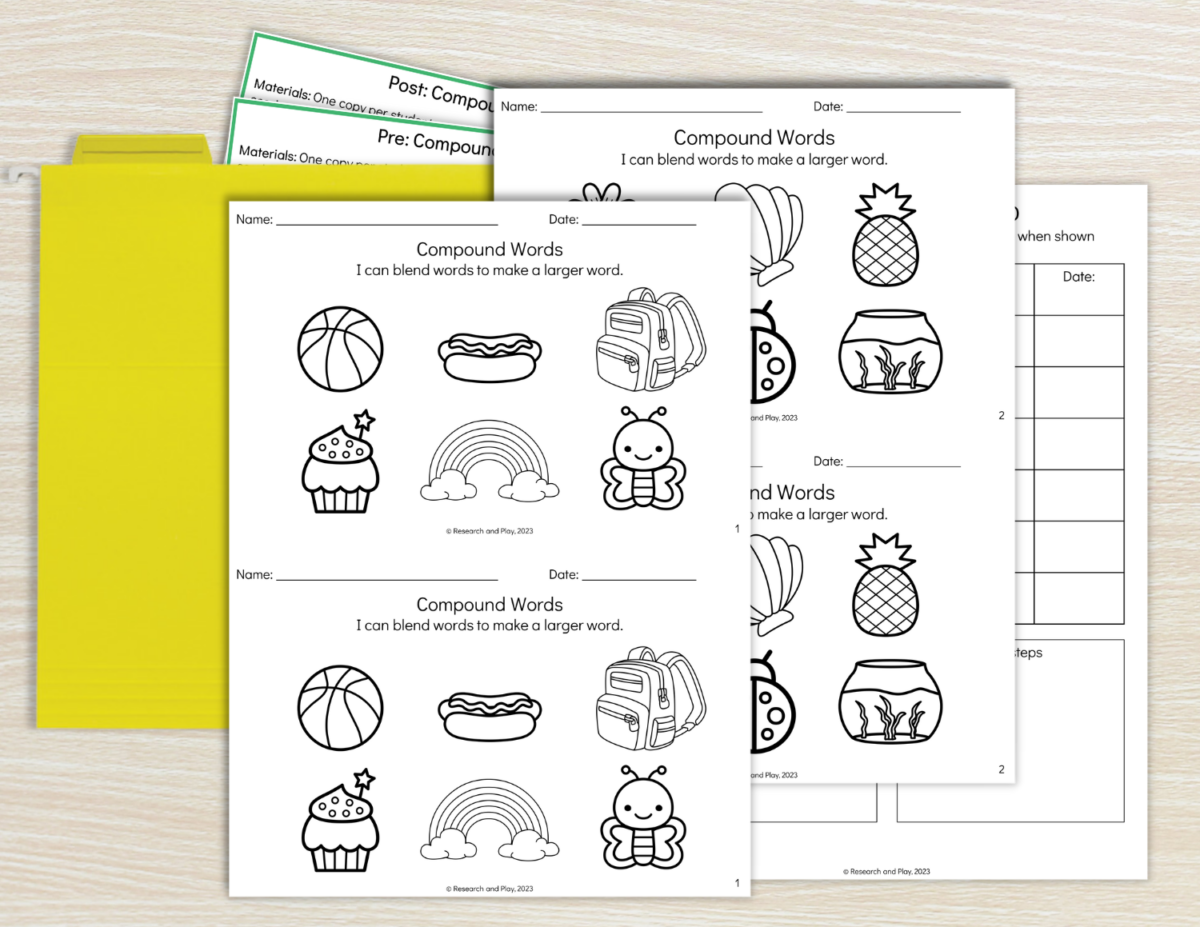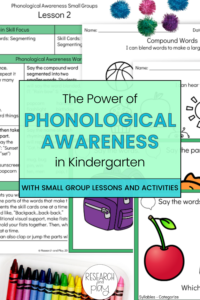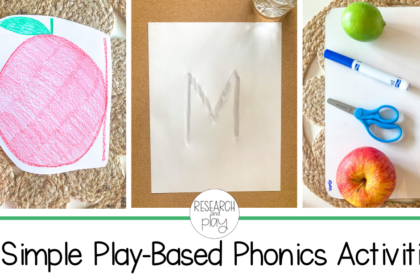Phonological awareness is a vital piece of literacy development in young children. It occurs along a continuum on which skills develop in stages. This progression begins with skills like word and sentence awareness, then moves into more specific parts of words like syllables and rhyming. Eventually, phonemic awareness skills begin to develop, and words are broken into individual sounds. Understanding the importance of phonological awareness can greatly support children’s language acquisition and reading abilities.
It can seem like a daunting task, however, when you are beginning to teach phonological awareness in kindergarten. From the planning and pacing to the gathering of materials and activities, a lot of time can be spent prepping meaningful lessons. That’s why I’ve created a comprehensive resource that takes care of all of that for you. Read on to learn about four early phonological awareness skills you should teach, then see how I can help you get started!
Emergent Phonological Skills: Word Awareness
Word awareness refers to a child’s ability to recognize and manipulate whole words in spoken language. It forms the building block for vocabulary growth and comprehension. By engaging in activities that promote word awareness, such as repeating sentences and counting words in sentences, kindergarteners strengthen their understanding of the structure and meaning of words. This skill will not only aid in decoding unfamiliar words during reading but will also foster oral language fluency and expressive communication.
Breaking Down Words: Syllables
The ability to recognize and manipulate syllables is another crucial aspect of phonological awareness. Breaking words down into syllables helps children identify patterns and rhythm within language. Using specific activities that include segmenting and blending syllables, kindergarteners develop phonemic segmentation skills which can enhance their ability to decode and spell words accurately. Syllable awareness lays the foundation for word blending, allowing children to easily combine syllables to form words.
Breaking Down Words: Rhyming
Rhyming, the ability to identify and produce words that share similar ending sounds, plays a vital role in phonological awareness development. Kindergarteners who can recognize rhyming patterns demonstrate a heightened sensitivity to the sounds within words. Rhyming activities, such as identifying words that don’t belong or creating new words with the same rime, can set children up for the next skill in the phonological awareness continuum: phonemic awareness. This skill bridges the gap between oral language and reading, promoting phonics skills and aiding in the recognition of word families.
Early Phonemic Awareness: Initial Sounds
The ability to identify and manipulate initial sounds in words is a fundamental phonological awareness skill. Recognizing the first sound of a word helps children understand the alphabetic principle and build phonemic awareness. Engaging in activities like sorting objects by their initial sounds encourages kindergarteners to focus on the distinct sounds within words. As they develop this skill, children gain the ability to manipulate initial sounds, enabling them to eventually blend and segment sounds in spoken and written language, which is essential for reading and writing.
Phonological awareness forms the foundation of early literacy skills in kindergarten. By nurturing word awareness, syllables, rhyming, and phonemic awareness, we can provide children with the tools to decode words, develop vocabulary, and comprehend written language which paves the way for successful reading and language development.
How to Teach Phonological Awareness with Ease
Small group instruction is a powerful way to provide targeted, differentiated support for your students. When teaching such a broad skill like phonological awareness in kindergarten, it’s helpful to break instruction into smaller chunks and to deliver it to smaller groups of children. Having a resource that combines all of these early phonological awareness skills with simple yet effective lessons, engaging activities, fun games, and assessments is key!
I’ve created this resource to give teachers back their time and to make teaching phonological awareness in kindergarten straight-forward and simple. Using my Phonological Awareness Small Group Lessons: Set 1, you can have everything you need prepped and ready to go as soon as you’re ready to start small groups. Some highlights of this resource include:
- 40 lessons that are clearly planned and engaging
- 160 skill cards to support the skills taught during the warm up
- 8 games to reinforce skills that can be played again and again
- 8 assessments to be given as pre- and post-data points with checklists
- An If/Then menu for even more targeted support
- Clear instructions and tips for teaching and organization
This resource is classroom-proven and has supported multiple kindergarten students with their phonological awareness skill growth! It has also been used for intervention in both first and second grades for students who need more support in these skills. I know it will make a difference in your students’ growth. Let’s take away the daunting nature of teaching phonological awareness in kindergarten and make it part of your instructional routine!
Are you on Pinterest? Click this image and save this post for later!

